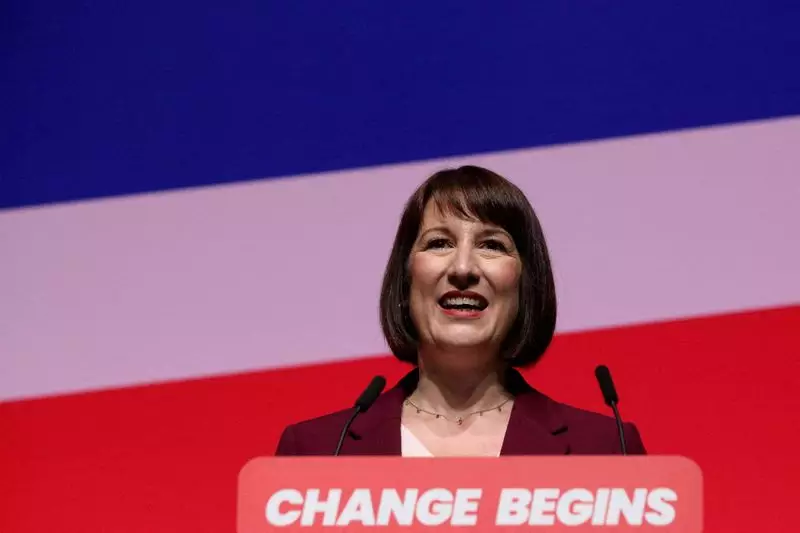In a pivotal moment for British fiscal policy, Finance Minister Rachel Reeves is preparing to unveil a budget that is not merely a financial document but a declaration of intent aimed at revitalizing the UK economy. As Reeves embarks on a critical two-day mission to meet with global financial leaders in Washington, she sets the stage for the Labour Party’s first budget since regaining power after a 14-year hiatus. This proposed budget emerges not only in the shadow of previous government policies but also amid pressing global economic challenges, making it a moment laden with expectations on multiple fronts.
Reeves aims to raise approximately £40 billion (equivalent to $52 billion) through a combination of tax increases and prudent reductions in public expenditure. This ambitious plan is designed to fortify public services while simultaneously addressing the budgetary deficiencies inherited from her predecessors. The finance minister’s strategy is rooted in a desire to apply a comprehensive reset to the fiscal landscape of the UK—prioritizing investment as a means to cultivate long-term economic stability and growth.
During her meetings at the International Monetary Fund (IMF) and World Bank annual gatherings, Reeves plans to advocate not just for increased funding for public services but also for a significant revision of the fiscal frameworks that limit government borrowing capacities. Changing these rules is essential, as current constraints hinder flexibility and responsiveness to the nation’s investment needs. While government officials have refrained from commenting explicitly on speculation regarding budgetary reforms, it is clear that Reeves’ vision includes a progressive recalibration of fiscal policy to stimulate economic engagement.
As Reeves prepares for her budget announcement in the coming days, she envisions it as an inflection point—”a reset for our economy,” as she describes it. Her mission is to lay a strong foundation that can bolster British influence globally, especially concerning pressing geopolitical challenges in regions like the Middle East and Ukraine. These external factors not only shape global dynamics but also directly influence domestic economic health and investment strategies.
Recognizing the interconnected nature of the global economy, Reeves plans to stress the importance of substantial development financing for lower-income nations. This approach serves to bolster the UK’s standing on the world stage while meeting international sustainable development objectives. By advocating for greater transparency concerning debt among wealthier G20 nations, Reeves is positioning the UK as a leader in global fiscal responsibility.
The recent uptick in the IMF’s growth forecast for the UK—projected at 1.1% for 2024—indicates cautious optimism. However, these figures also highlight the challenge of revitalizing an economy that is underperforming relative to historical standards. As public debt continues to climb, Reeves must navigate the delicate balance between governmental spending and the imperative to maintain economic credibility domestically and internationally.
To achieve this balance, Reeves is rumored to be considering a revision to how public debt is calculated. By potentially adopting a more expansive view of public liabilities, which encompasses a wider array of public assets, the Chancellor could unlock additional borrowing capacity—potentially in the tune of £50 billion. This strategic shift might provide much-needed leeway in funding essential services while signaling to markets that the UK is committed to maintaining fiscal health.
Rachel Reeves’ impending budget announcement represents a significant recalibration of the UK’s financial philosophy. As she works to infuse new energy into the economy while safeguarding public interests, her approach could redefine the intersection of public services and investment. With a focus on initiating a fundamental economic reset and positioning the UK favorably regarding its international obligations, Reeves aims to set a course that is both pragmatic and aspirational. The outcome of her efforts will not just affect the nation’s economic trajectory but will also reflect how the UK chooses to navigate the complexities of an increasingly interconnected global economy.

